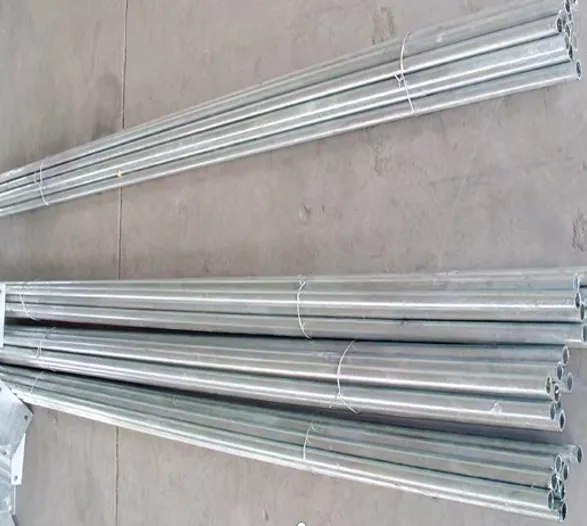loading...
- No. 9, Xingyuan South Street, Dongwaihuan Road, Zaoqiang County, Hengshui, Hebei, China
- admin@zjcomposites.com
- +86 15097380338
- Welcome to visit our website!
frp moulded grating
Understanding FRP Moulded Grating A Versatile Solution for Industrial and Commercial Applications
In today's industrial and commercial landscape, efficiency, safety, and durability are paramount. One material that has gained significant attention in various sectors is fiberglass-reinforced plastic (FRP), particularly in the form of moulded grating. This versatile product is increasingly being utilized in numerous applications due to its unique properties, which offer a plethora of advantages over traditional materials such as steel or wood.
What is FRP Moulded Grating?
FRP moulded grating is an engineered composite material that consists of a plastic matrix reinforced with glass fibers. The manufacturing process involves moulding, where the glass fibers are combined with a resin and cured in a controlled environment to create a strong, lightweight, and corrosion-resistant product. This grating comes in various shapes, sizes, and styles, making it customizable for different applications and environments.
Key Benefits of FRP Moulded Grating
1. Corrosion Resistance One of the standout features of FRP grating is its excellent resistance to corrosion caused by chemicals, moisture, and harsh environmental conditions. This makes it ideal for use in industries such as chemical processing, wastewater treatment, and marine applications where exposure to corrosive substances is common.
2. Lightweight Compared to conventional materials like steel or aluminum, FRP grating is significantly lighter, which simplifies handling, installation, and maintenance. This property also results in lower shipping costs and reduced structural support requirements when installed.
3. Enhanced Safety FRP moulded grating is designed with a non-slip surface, providing improved traction and reducing the risk of slips and falls in demanding environments. This is particularly crucial in industrial settings where worker safety is a top priority.
4. Durability and Longevity The resilience of FRP against impact and wear, coupled with its resistance to UV rays, ensures a longer service life. This durability translates to reduced maintenance costs and extended intervals between replacements, offering an economical solution over time.
frp moulded grating

5. Electrical Insulation FRP is a non-conductive material, making it suitable for environments that require electrical insulation. This characteristic is especially beneficial in applications within electrical plants or environments where static electricity could pose a risk.
Applications of FRP Moulded Grating
The versatility of FRP moulded grating enables it to find utility across various sectors
- Industrial Platforms and Walkways FRP grating is often used to fabricate walkways, platforms, and staircases in factories, power plants, and facilities where chemical exposure exists.
- Wastewater Treatment Facilities The grating's corrosion resistance makes it well-suited for applications in wastewater treatment plants, where it often replaces traditional materials that would degrade over time.
- Marine Use Boat docks, piers, and marinas benefit from the lightweight and anti-slip properties of FRP gratings, which are not adversely affected by saltwater, thereby enhancing their longevity.
- Food Processing The hygienic properties of FRP, along with its easy-to-clean surface, make it an excellent choice for food processing facilities, where cleanliness is critical.
Conclusion
In conclusion, FRP moulded grating is a remarkable solution that addresses many of the challenges faced in industrial and commercial applications today. Its unique combination of lightweight, corrosion resistance, safety features, and durability makes it an invaluable resource for various sectors. As industries continue to evolve and seek innovative materials for their operational needs, FRP moulded grating stands out as a reliable choice that not only meets but exceeds expectations. Embracing such advanced materials can lead to safer, more efficient, and cost-effective operations in the long run.
-
The Rise of FRP Profiles: Strong, Lightweight, and Built to LastNewsJul.14,2025
-
SMC Panel Tanks: A Modern Water Storage Solution for All EnvironmentsNewsJul.14,2025
-
GRP Grating: A Modern Solution for Safe and Durable Access SystemsNewsJul.14,2025
-
Galvanized Steel Water Tanks: Durable, Reliable, and Ready for UseNewsJul.14,2025
-
FRP Mini Mesh Grating: The Safer, Smarter Flooring SolutionNewsJul.14,2025
-
Exploring FRP Vessels: Durable Solutions for Modern Fluid HandlingNewsJul.14,2025
-
GRP Structures: The Future of Lightweight, High-Performance EngineeringNewsJun.20,2025
